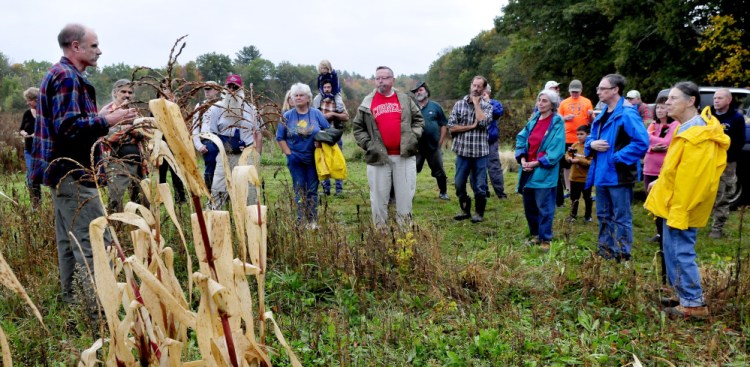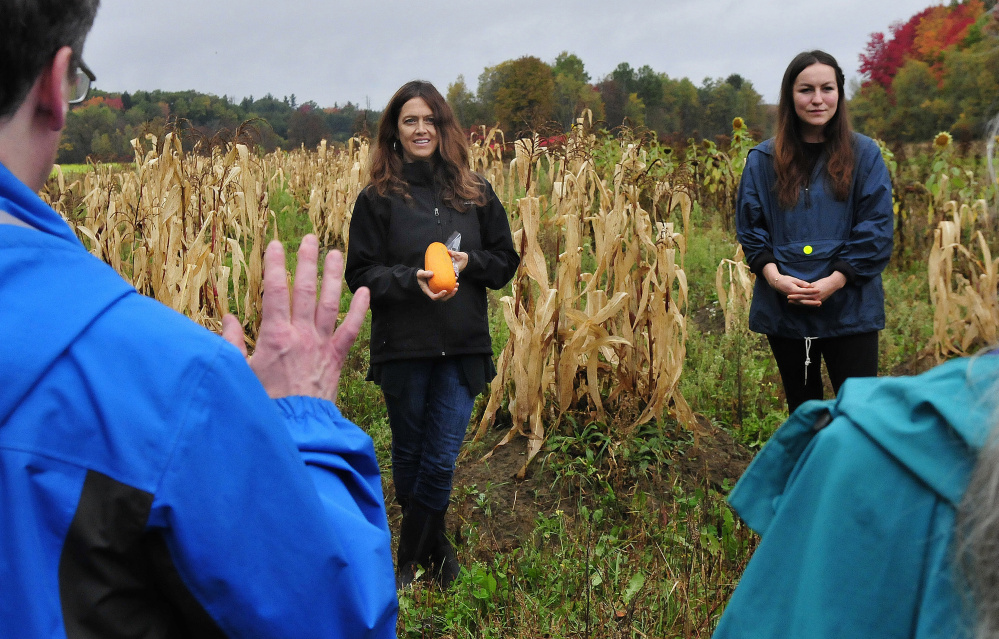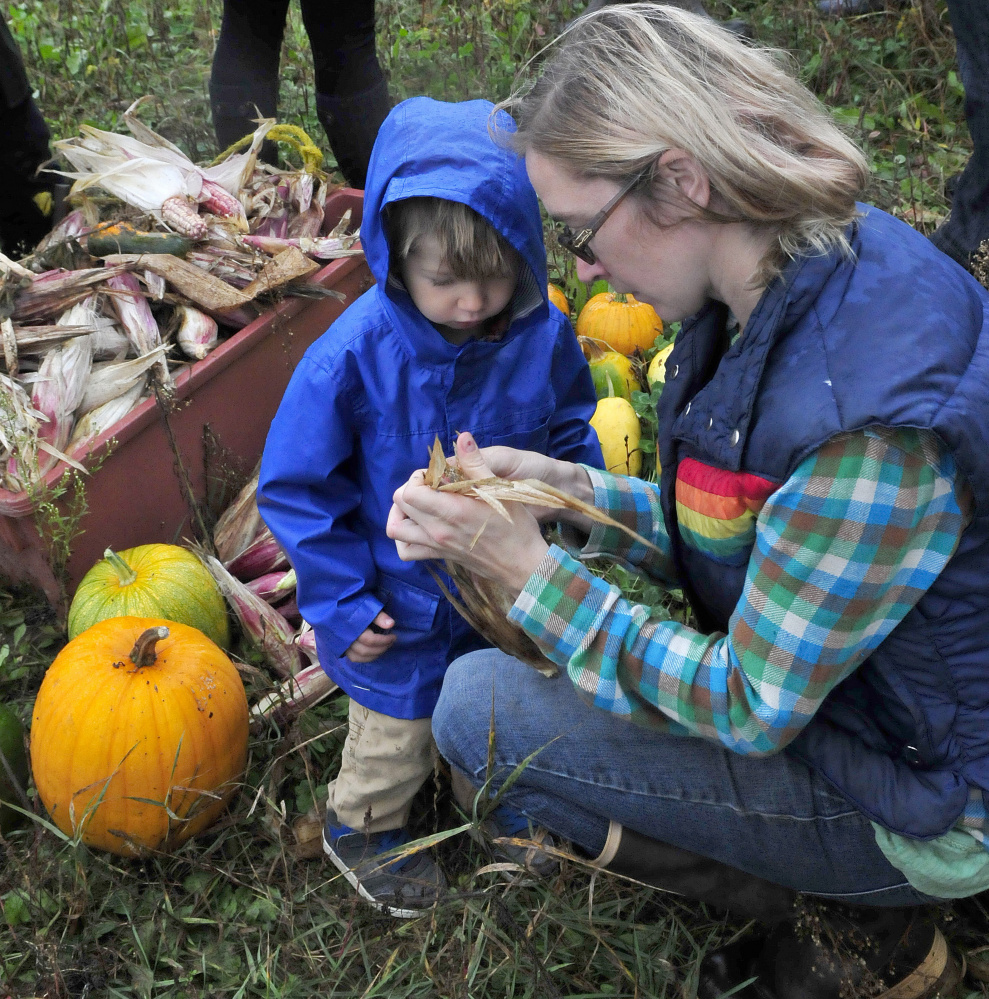On Indigenous Peoples Day, Kathy Pollard said she would like to focus on the future while Ashley Smith, who graduated from Madison Memorial High School, came with a message about the past.
Pollard, who is of Cherokee descent, joined her daughter Ann Pollard-Ranco and Karyn Marden Monday afternoon on a tour of a planting field at Sweet Land Farm, owned by Jay Robinson, in Starks on a day highlighting the history of native people in the area and the work they are doing now.
Robinson is letting their nonprofit, Gedakina, practice on his fields indigenous farming traditions that Pollard said are more sustainable than the monoculture methods used today.
Using the Three Sisters method, indigenous people planted squash, corn and beans together in mounds, taking up less acreage and allowing a synergy to form between the three vegetables.
“It’s a way of farming that yeah, you don’t have as high a yield per acre, but that’s not always the goal,” said Pollard, who writes grants and works on development for Gedakina. “The goal in native culture has always been and always will be sustainability and being stewards of the environment.”
Much of the food will go to indigenous communities or those in need in local communities. Eventually, the nonprofit hopes to have native youth sell the produce at stands to get them engaged with the traditions.
“I think most of us like to focus on what’s possible and hope for the future instead of constantly dwelling on the past,” Pollard said in a phone interview Monday. “What are we bequeathing to our children and grandchildren?”
Pollard said she was watching her daughter, Ann Pollard-Ranco, walk through the fields and “when she put her hands in the soil for the first time this year, she could feel that connection, she could just feel that connection and that she belonged.”
At the March Town Meeting, residents of Starks voted to no longer observe Columbus Day, 32-2. The small Somerset County town of 640 joins a growing number of municipalities throughout Maine and beyond that now celebrate Indigenous Peoples Day.
To celebrate the day, the public was invited to attend a tour of the planting field, a potluck supper and a presentation by Ashley Smith, an instructor in Native American studies and environmental justice at Hampshire College. The Starks Historical Society and the Starks Enrichment and Education Society sponsored the events.
Smith, 31, graduated from Madison Area Memorial High School in 2004 and is of Franco-Wabanaki descent. She decided to study and teach about Native American history because of her own interests in her ancestors. The area of Norridgewock Village was very important to her family, she said, and she spent time studying the effects of violence and erasure on both the French and indigenous peoples during colonial era wars while in high school and college.
As a scholar, Smith said she sees the second Monday in October as a day to push back on damaging narratives and acknowledge history.
“I think it’s really important that we really take a look at the histories behind the holidays that we have and really ask ourselves what is it we think is important to celebrate, and what are our values,” Smith said in a phone interview Monday. “For Columbus Day, it doesn’t make a whole lot of sense for what we as a nation and what we as local communities value. Columbus never made it to North America. He wasn’t a great guy. He made it to the Bahamas by mistake” because he didn’t believe the scholars at the time and their estimates of the size of the globe.
Smith said Indigenous Peoples Day is about valuing the truth about what happened centuries ago, and what indigenous peoples have survived.
“It’s also to celebrate and recognize that they have survived, and that indigenous people are still here,” she said.
To emphasize that point, Smith gave a talk called “Norridgewock Village: History, Memory, Continuity” about not only the massacre that occurred in 1724 when the British attacked the village, but also the descendants of those people and their continued relationship with the village.
She remembers growing up in the area and hearing about how the attack was the end of the Norridgewock people, but at the same time she knew many descendants of that village.
“Wabanaki people continue to visit the site,” she said. “And while the attack on Norridgewock Village was violent and horrible … it’s also really important to acknowledge that it wasn’t the end.”
Madeline St. Amour — 861-9239
mstamour@centralmaine.com
Twitter: @madelinestamour
Send questions/comments to the editors.





